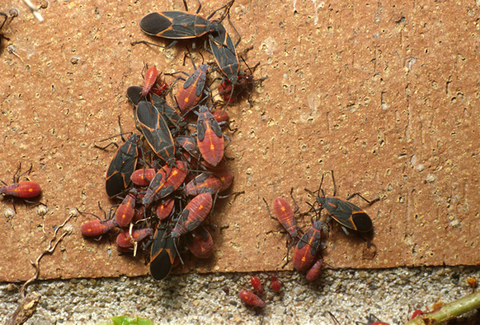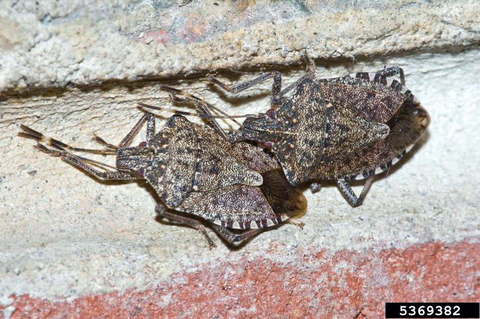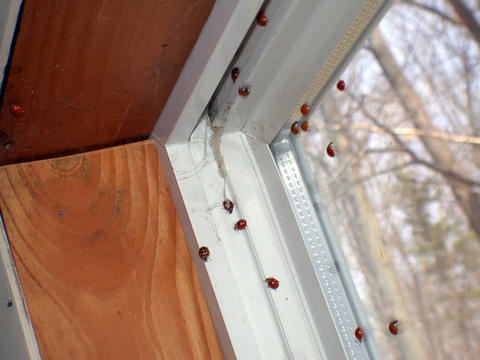Chilly mornings and shorter days signal to humans an impending winter. Bugs get the same message, and they head out to figure out where they’re going to settle in for the winter. Some bury themselves in soil, some in leaves, while others just die. Minnesota is home to a few species of insects with a very specific place they want to spend the winter — in our homes.
The Big Three
When it comes to home-invading bugs, there are three we commonly see this time of year in Minnesota. These insects are boxelder bugs, multicolored Asian lady beetles, and the newest addition, brown marmorated stinkbugs. They spend their summers feeding on different things, but the one thing they have in common is a habit of clustering around and in homes when the weather cools. They are especially common on structures that get direct afternoon sun.
What do these bugs mean for you and your home?
Besides annoyance, not much! They don’t feed on wood or other building materials, and they don’t spread disease to people or pests. Multicolored Asian lady beetles sometimes bite when handled, and they, along with brown marmorated stinkbugs, create a bad smell when stressed or crushed.
Their high numbers and appearance mid-winter when furnaces get cranked is a nuisance, but generally nothing more.
Keeping the bugs outside your home
Want to do something about these bugs? The biggest thing you can do is seal up your home to keep them out. Check window screens for holes and patch them, and look for broken seals around doors and windows. Also look at the seals around spots where wires, pipes and vents leave your home. Don’t forget to look up as you do this, all these bugs can fly and climb, so also look at soffits and fascias.
Checking the exterior of your home and making it bug-proof can have other benefits. Mice only need a quarter inch (think the size of a dime) to get into a house, so by bug-proofing your house, you can keep out pests that actually cause damage to your home.
If you want to take more aggressive action
If you want a direct approach, physical removal is a good option. Grab an extension cord and your shop vac and go to town. Sucked-up bugs can be dumped in the garbage or into a bucket of soapy water.
All of these bugs can be hard to target with pesticides. As they aren’t feeding while they are crawling on the outside of our homes, pesticides that target feeding insects won’t work. It is also late in the year, and these bugs may not be active outdoors for much longer. The products that can potentially work on these insects are limited and often carry some risk to the person applying it, as well as others and pets. Read the label carefully and follow its instructions.
CAUTION: Mention of a pesticide or use of a pesticide label is for educational purposes only. Always follow the pesticide label directions attached to the pesticide container you are using. Be sure that the area you wish to treat is listed on the label of the pesticide you intend to use. Remember, the label is the law.




